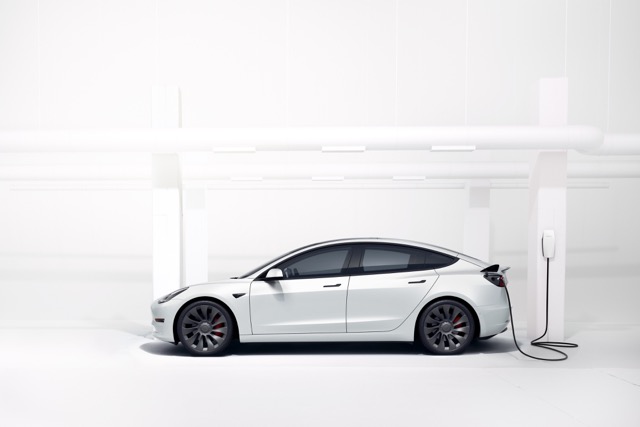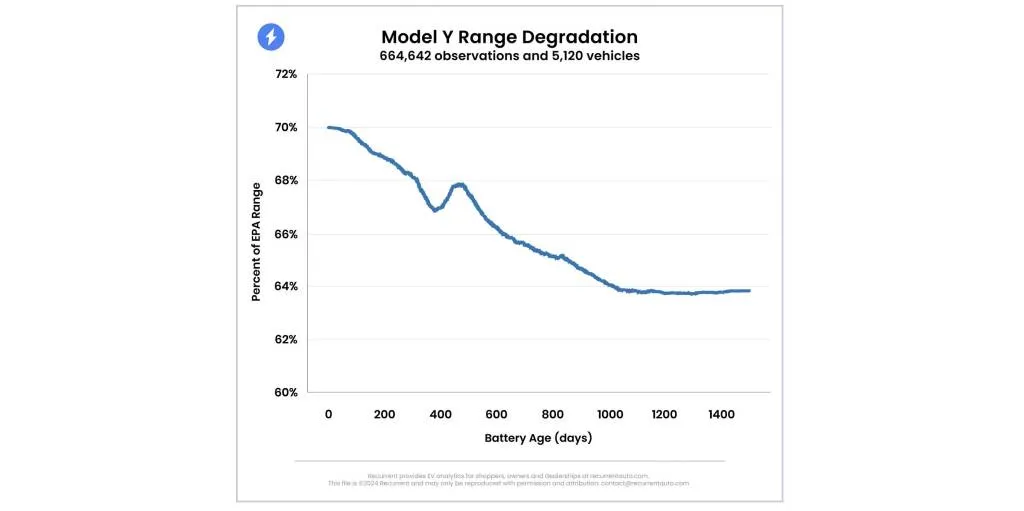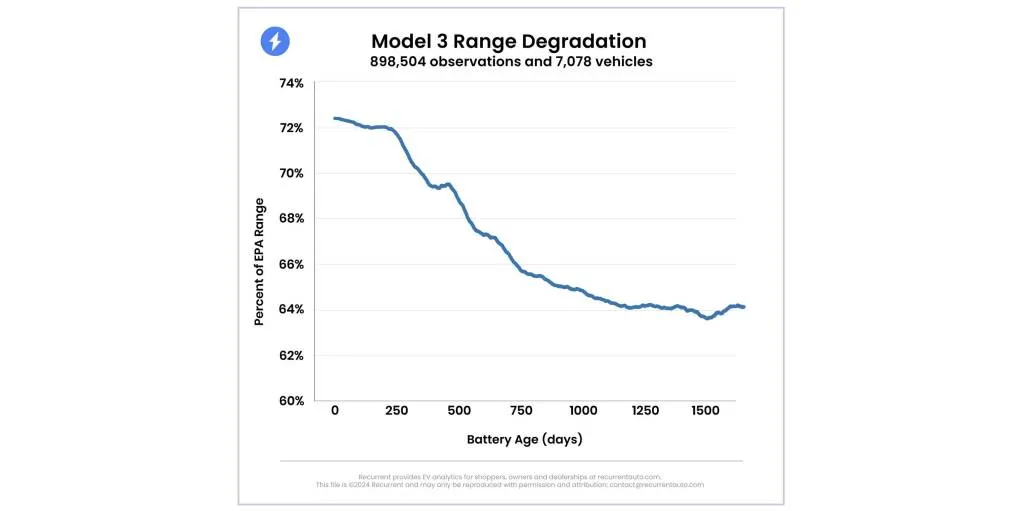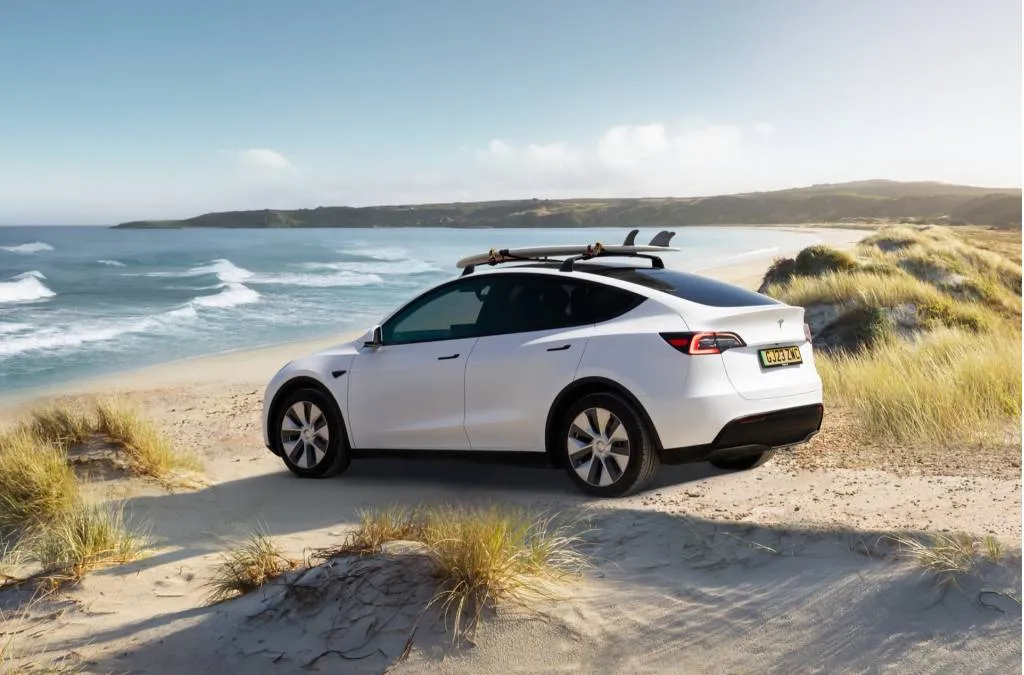

Here’s how much range Tesla EVs lose in the first three years
In real-world driving range, a three-year-old Tesla Model 3 or Model Y will likely retain roughly 64% of its EPA rating, according to analysis from battery-data firm Recurrent.
Recurrent cites battery health reports from used EVs, based on observations of cars already on the road. In 898,504 observations of 7,078 Model 3 sedans and 664,642 observations of 5,120 Model Y crossovers, Recurrent found that range tended to decline steeply during the first 1,000 days, or nearly three years, of battery age, to that 64% EPA-range mark, before stabilizing.

Tesla Model Y range degradation (via Recurrent)

Tesla Model 3 range degradation (via Recurrent)
It should be noted that these vehicles don’t start at 100% of their EPA rating in real-world use—more like 70% of it, representing Tesla’s more generous adjustment factor in calculating its posted range numbers in the first place. Based on what the firm has seen and reported previously, a number of other EVs start at a higher real-world range figure relative to their rating.
Lithium-ion battery degradation tends to follow an S-shaped curve, according to Recurrent. When a battery is new, there can be some noticeable degradation as it settles into a steady state, the company says, but this levels off for awhile. Ultimately, batteries will start to degrade significantly again later in life, to the point where they need to be replaced.
EV battery degradation tends to be the steepest in the first three years of ownership—just as vehicle depreciation is typically the steepest up to year three.

2024 Tesla Model Y. – Courtesy of Tesla, Inc.
Once again, Recurrent’s results emphasize that battery degradation is predictable and isn’t likely to “brick” your EV. And recalls aside, battery replacement is relatively rare. Outside of big recalls, Recurrent estimates that only 2.3% of EV batteries have been replaced—and most of those are in older vehicles. An estimated 13% of EVs from model year 2015 and earlier have had battery replacements, but less than 1% of 2016-and-newer EVs have needed this, according to Recurrent. And many of those replacements were under warranty.
Recurrent also reported last year that Teslas don’t seem to be affected, in terms of degradation, by frequent fast-charging, as much as other EVs. They are affected by hot weather, though, the company has found. And while cold weather doesn’t seem to be as tied to battery degradation, it can put a big dent in range, depending on the model.
Add a comment Cancel reply
Comments (0)
Related posts


Electric SUVs: Top 6 Models for Family Trips











